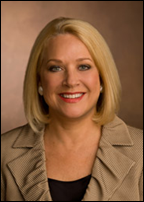The article about Pediatric Associates in CA has a nugget with a potentially outsized impact: the implication that VFC vaccines…
News 07/16/09
iMedica changes its name to Aprima Medical Software to avoid confusion with several other similarly-titled healthcare companies. The company also rolled out a new website, aprimaehr.com.
The HIMSS Electronic Health Records Association (EHRA) sends a letter to the ONC recommending, among other things, that CCHIT be “the single certifying entity to avoid duplication of effort, unnecessary expense and confusion in the market.” In case you need a refresher course on how these various entities are intertwined, here’s some background. CCHIT was spawned from HIMSS. The EHRA is comprised of EHR vendors, most of whom are CCHIT-certified. CCHIT’s operations are largely funded from the monies vendors must pay to apply for CCHIT certification. Certification fees are $28,000. So, it makes perfect sense that the EHRA members want to preserve their investment by supporting CCHIT. It certainly helps keep the riff-raff out of the game.
One vendor definitely not in favor of mandatory CCHIT certification is SRSsoft, who just announced Northern California Medical Associates as its latest client. The 21-location, 50-provider group displaced two CCHIT-certified EMRs in place of the SRS EMR product.
Doctors at Gaston Medical Group (NC) contact police claiming more than $333,000 has been embezzled from the practice. The six-doctor group claim the money was stolen using counterfeit payroll checks.
DocSite announces that six state medical associations are now offering its PQRI product to facilitate PQRI reporting. Medical societies in Colorado, Tennessee, Idaho, Nebraska, Iowa and New Hampshire are now offering the product to members.
e-MDs releases its 6.3.0 Solution SeriesTM solution, which incorporates such enhancements as a First DataBank’s drug database solution, upgrades to the Surescripts e-rx application, abd support for continuity of care documents.
It’s hard not to be sucked into the Michael Jackson medical drama since the media is constantly providing “breaking news!” with the latest scandalous details. Today’s headlines include word that at least nine doctors are under investigation for their role in providing Jackson prescription drugs.
Allscripts announces it is working with the AMA to offer an AMA-branded e-prescribing tool. The tool will be available at no cost to subscribers of a new online solution being developed by the AMA, with help from Covisint.
TetriDyn Solutions is now a certified VAR for McKesson’s Practice Partner EHR solution. TetriDyn also offers its own small-practice EHR solution, AeroMD, and is a Medisoft PM reseller.
XM Satellite Radio fans now have a new source for advice on improving physician practice management. Practice Success is a practice management radio show featured on ReachMD’s channel 160. Karen Zupko of KarenZupko & Associates is hosting the program, which will offer practical practice management advice for physicians and their staff.
The consumer price index for physician services rose 3.3% for the 12 months ending in June, which is a tad more than the 2.8% increase the previous year. Physician office prices rose .2% in June, compared to a .1% decline in May.
A Washington state oncologist files suit against Olympic Medical Center, charging the hospital’s hiring of employed physicians constitutes a monopoly. Dr. Robert Witham claims that the medical center’s direct hiring of doctors violates the law by creating unfair competition with private physicians. The case could be interesting to follow, especially with more and more practices selling themselves to hospital systems.
The HHS announces plans to develop an electronic family history tool that will help doctors identify women at risk for having preterm labor or delivering a child with a birth defect. The web-enabled My Family Health Portrait program will allow patients to enter data via computerized tablets, which would then be analyzed electronically.
Lori Heim, AAFP’s president-elect, tells Congress that healthcare reform will not succeed without an adequate supply of primary care physicians. The AAFP is calling for measures that would boost the number of primary care physicians to at least 45% of the healthcare workforce, and include an immediate increase in primary care physician payment.



